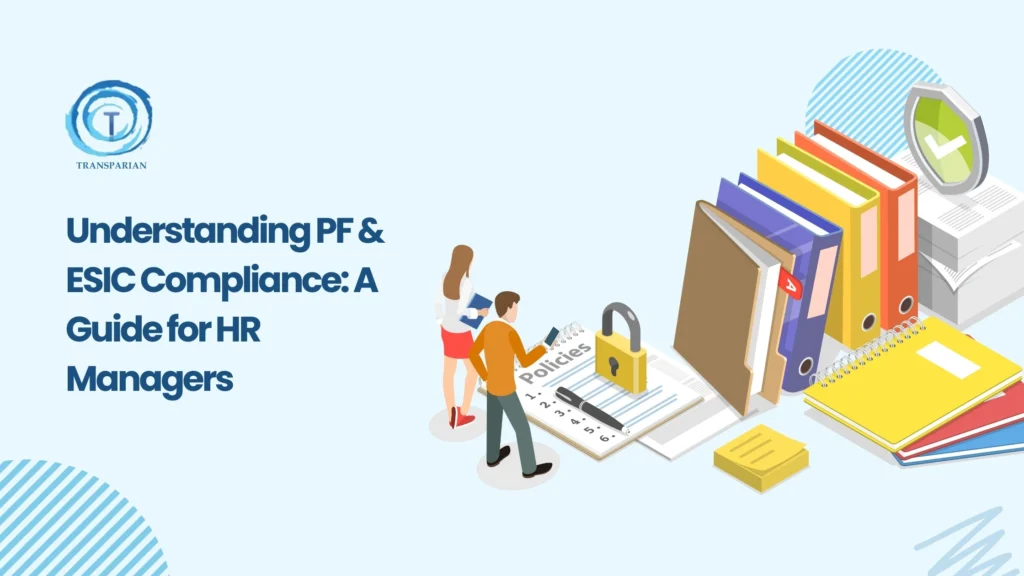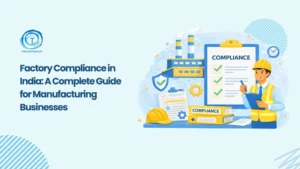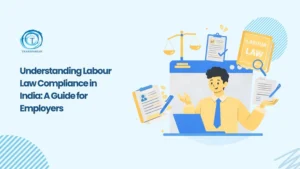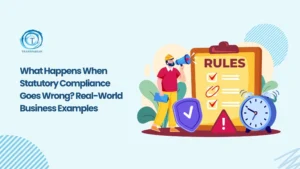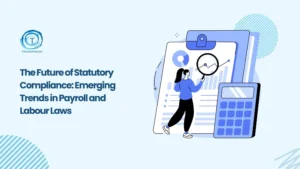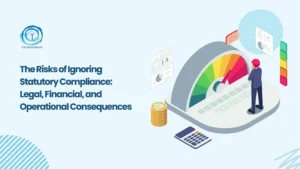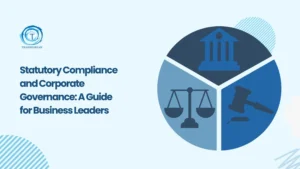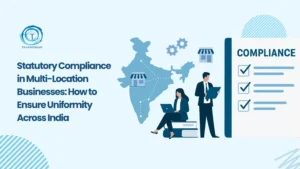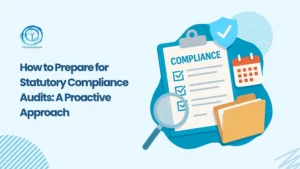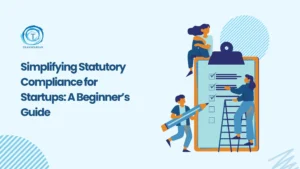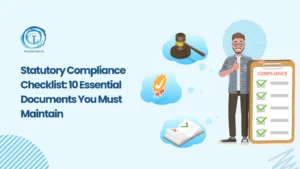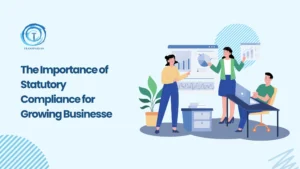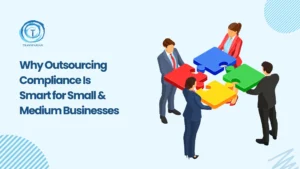Managing people in India carries the crucial responsibility of ensuring proper handling of employee benefits and statutory contributions. Two of the pillars of the law on employee welfare are the Provident Fund (PF) and the Employee State Insurance Corporation (ESIC). To the HR managers, compliance in this case is not only about the filing of returns in a timely manner, but also the creation of trust, the prevention of penalties and maintaining the image of the organization.
This guide discusses both the basics and often-missed areas of PF compliance and ESIC compliance, providing HR professionals with a practical reference on labour law compliance in 2025.
Why PF & ESIC Compliance Matters for HR Managers
Compliance under PF and ESIC goes beyond payroll deductions, it directly impacts employees’ financial security and medical support. PF guarantees retirement savings and long term benefits and ESIC provides medical, maternity and disability insurance.
Non-compliance is costly. PF Act brings damages and interest of up to 12% on late payments whereas ESIC Act brings fines, prosecution and in certain instances, jail term. HR managers, consequently, have a significant role to play in compliance management and making sure that each employee is given what he is entitled to.
Applicability of PF and ESIC
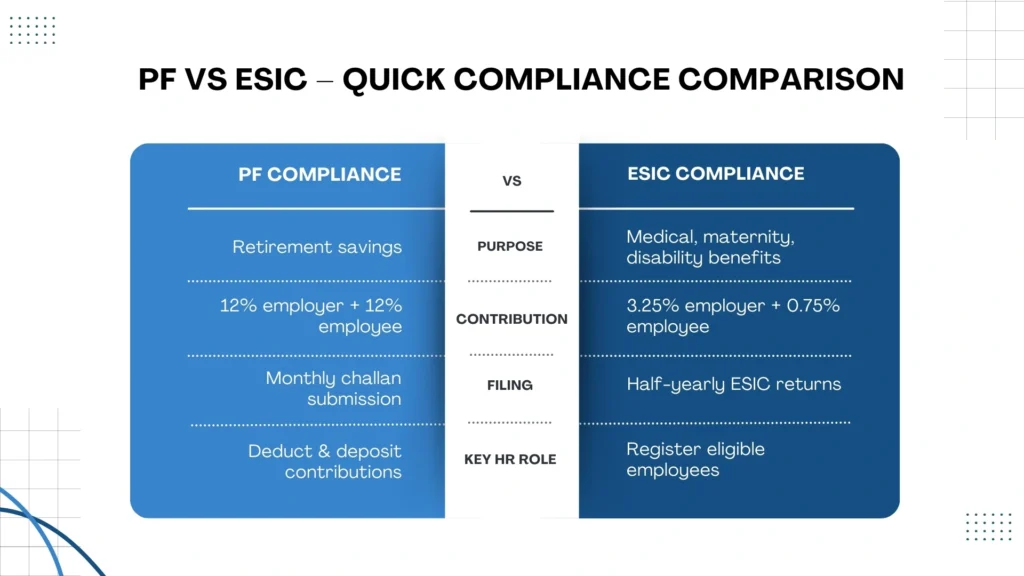
- PF compliance becomes mandatory once an establishment employs 20 or more employees. Voluntary coverage is also possible for smaller firms.
- ESIC compliance is triggered when an establishment has 10 or more employees (20 in some states) and applies to employees earning up to ₹21,000 per month.
Compliance requirements normally persist even when the number of employees reduces below thresholds in the future. HR managers have to monitor applicability and register with the corresponding authorities.
Registration Process: Step-by-Step
PF Registration
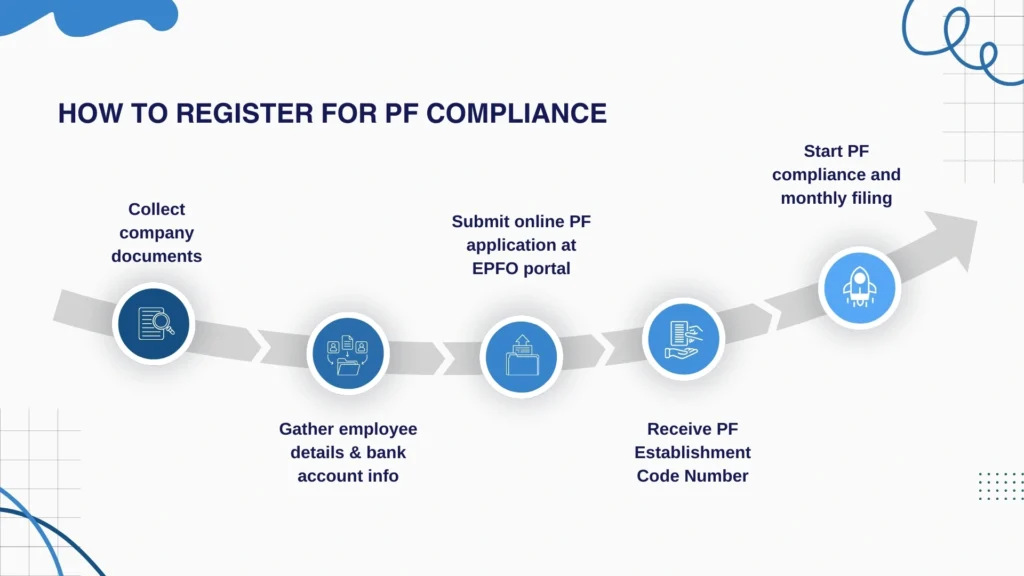
- Apply online via the Unified Shram Suvidha Portal (USSP).
- Submit required documents: PAN, incorporation certificate, specimen signatures, employee details.
- Once approved, the organization receives an Establishment Code.
ESIC Registration
- Apply via the ESIC online portal.
- Provide establishment PAN, incorporation certificate, bank details, employee salary sheets.
- Post-registration, employers generate E-Pehchan Cards for employees to avail medical benefits.
Professional help from a PF & ESIC Consultant or a compliance consultant can simplify registrations and reduce errors.
Contribution Structure
PF Contributions
- Employee: 12% of basic wages.
- Employer: 12% split into Provident Fund, Employee Pension Scheme (EPS), and administrative charges.
- Reduced rate: For specific organizations (small firms), employer contribution may drop to 10%.
ESIC Contributions
- Employer: 3.25% of gross wages.
- Employee: 0.75% of gross wages.
- Applicability: Only for employees earning up to ₹21,000/month.
Understanding these rates helps HR ensure correct deductions in statutory payroll compliance.
Monthly and Annual Obligations
PF Compliance Timeline
- PF challan and Electronic Challan-cum-Return (ECR) filing by the 15th of every month.
- Annual return and employee details verification.
ESIC Compliance Timeline
- ESIC returns filing and contributions due by the 15th of every month.
- Half-yearly returns: April–September and October–March.
HR teams should maintain a monthly compliance calendar to avoid delays, penalties, and notices.
Handling PF & ESIC Audits and Notices
Another less-discussed but important issue to consider is handling audits or responding to notices. Officials can examine such documents as salary roll books, leave books, and payment challans
HR compliance tips:
- Keep all records digitized for quick reference.
- Respond to notices promptly with documented evidence.
- If discrepancies are found, calculate arrears and settle immediately to minimize damages.
The presence of a PAN India compliance agency or compliance services partner assists organizations in the management of inspections.
Penalties and Consequences of Non-Compliance
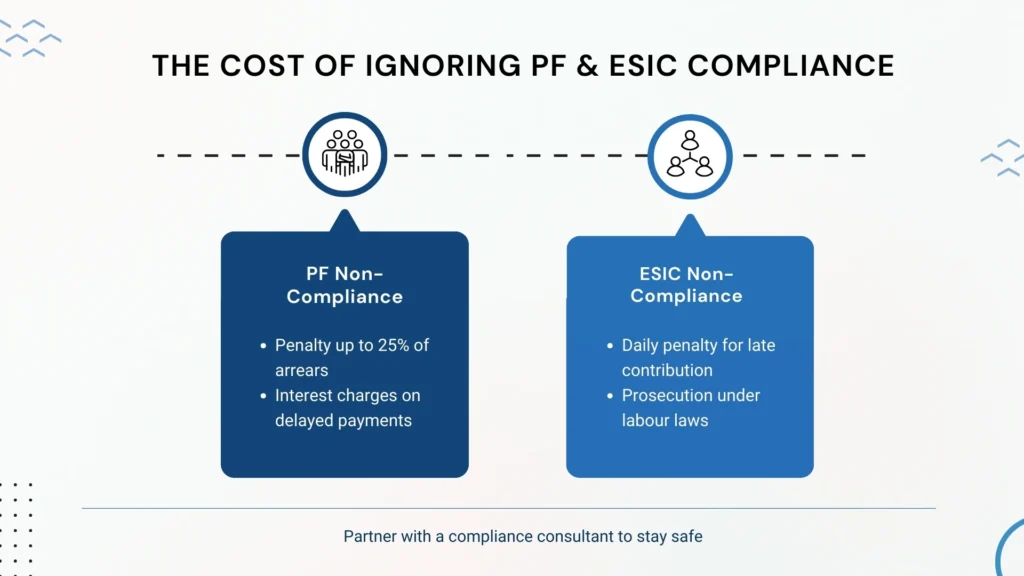
PF Penalties
- Delay in payment: 12% per annum interest.
- Damages: Between 5% to 25% of arrears, depending on delay period.
- Prosecution: Severe cases may lead to imprisonment.
ESIC Penalties
- Interest: 12% per annum on delayed payments.
- Penalty: Additional fines up to 25% of contribution amount.
- Criminal liability: For repeated non-compliance, imprisonment up to 2 years.
This makes proactive compliance management critical.
International Employees and Compliance
As more companies hire global talent, HR managers must understand how PF and ESIC apply to foreign employees too. PF extends to the majority of foreign nationals who work in India except those who are exempted by a bilateral social security agreement between India and their respective countries. ESIC usually applies when their wages are not below the statutory limit.
This area is often overlooked in compliance discussions, but mistakes here can cause disputes and international legal complications.
Case Example: Salary Breakdown for Compliance
Consider an employee with ₹20,000 basic wages:
- PF deduction: ₹2,400 (12%). Employer also contributes ₹2,400.
- ESIC deduction: ₹150 (0.75%). Employer contributes ₹650.
To the HR managers, instant calculation of salary will prevent unnecessary under- or over-deduction that may create a loophole in compliance. The payroll software integration ensures a faster and error-free compliance management.
Social Security Code & PF/ESIC Compliance
The Social Security Code 2020 is gradually consolidating PF, ESIC, and other laws. The important implications to HR managers are:
- Wider coverage for gig workers and platform employees.
- Uniform definitions of wages for contribution calculations.
- Enhanced digital filing and compliance monitoring.
Staying updated with these legal changes is an essential part of labour law compliance.
Role of HR in Compliance Management
For HR managers, compliance is not a one-time task, it’s a continuous process. Key responsibilities include:
- Ensuring timely PF compliance and ESIC return filing.
- Updating records with employee exits, re-joining, or international hires.
- Monitoring salary thresholds for new employees.
- Educating staff about PF and ESIC benefits.
- Coordinating with finance for accurate payroll deductions.
Some organizations engage external compliance services or a PF & ESIC Consultant to manage complex filings, especially when operating across states.
Technology and Compliance Automation
Digitalization has made compliance work in HR easier. Most payroll software now has PF and ESIC calculation options, automatic challan generation and monthly compliance calendar updates.
Integration ensures:
- Error-free deductions.
- Timely filing reminders.
- Centralized data storage for audits.
For companies with distributed teams, partnering with a PAN India compliance agency ensures uniform processes across states.
Building a Culture of Compliance in HR
Finally, compliance is not only unrelated to punishment, but it is also related to building trust in employees. HR managers need to do more than just the standard filings and inform the staff about the PF and ESIC benefits, such as retirement security, pensions, medical cover, maternity and the disability compensation.
Clear communication during onboarding, regular awareness sessions, and sharing resources like monthly compliance calendars help build transparency. When the deductions are realized in the form of actual benefits, the HR function will become a reliable companion in the process of employee welfare.
FAQ’s
PF compliance ensures timely contribution and reporting under the Employees’ Provident Fund Act. HR managers must oversee accurate deductions and deposits to avoid penalties and maintain employee trust.
Organizations that have 10 or more employees whose earnings are below the stipulated wage ceiling are required to be registered under ESIC. Proper ESIC registration safeguards employees with medical, maternity, and social security benefits.
Employers typically need a company PAN, incorporation certificate, employee details, and bank account information for PF compliance registration.
ESIC return filing is usually done half-yearly, along with monthly contribution submissions. HR managers must track due dates using a structured compliance management system.
Non-compliance can lead to fines, penalties, and even legal proceedings. A compliance consultant or PAN India compliance agency can help businesses stay fully updated.
A monthly compliance calendar typically covers PF challan submissions, ESIC contributions, and other deadlines related to HR compliance and statutory requirements.

